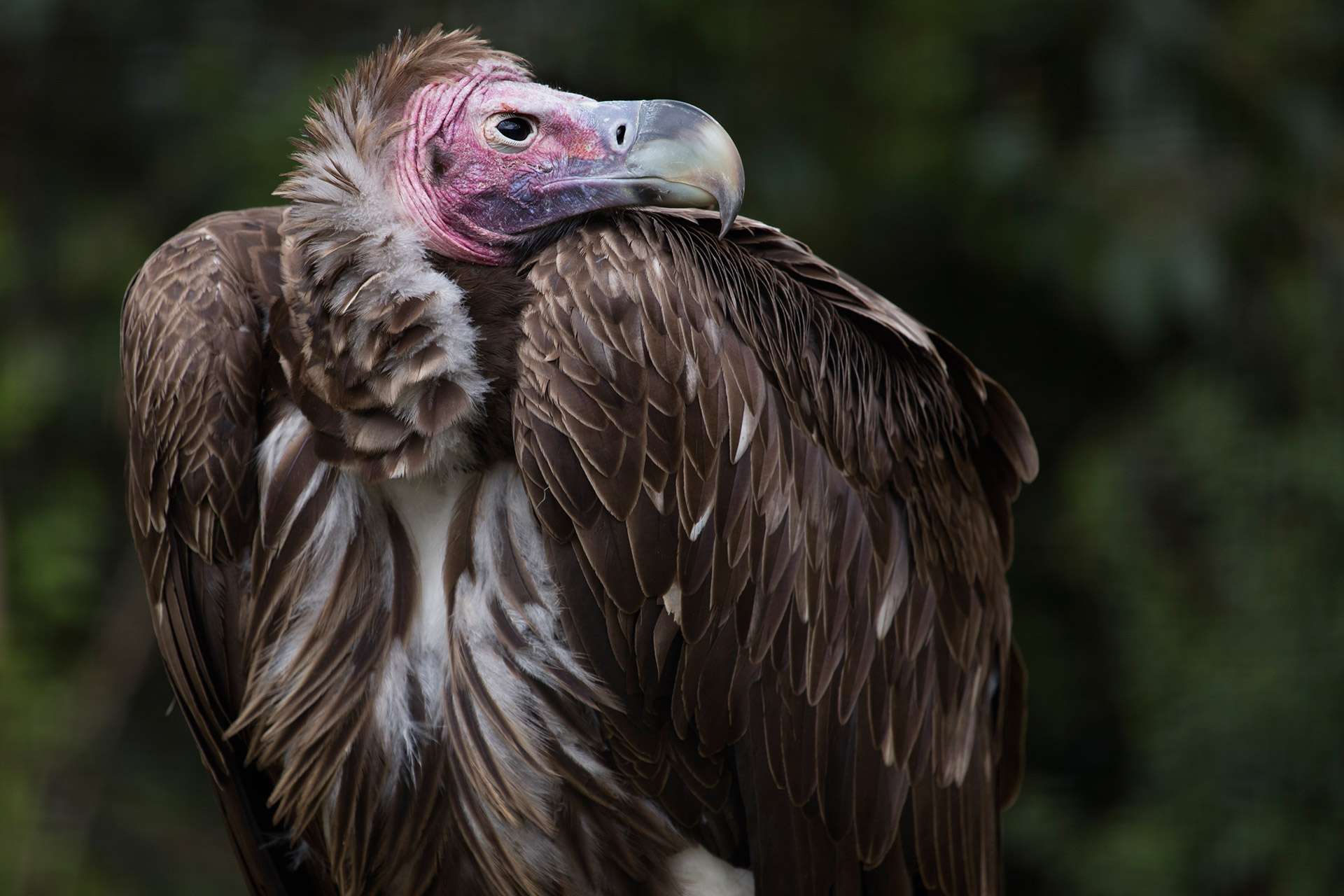Vultures play a critical role in stabilizing ecosystems by removing environmental toxins by consuming carrion, which helps mitigate the spread of disease and protect local food webs. Researchers have discovered that vultures have developed harsh chemical conditions in their gastrointestinal tracts that filter out many harmful microorganisms and tolerance towards some deadly bacteria. However, vultures are not immune to all toxins, especially human-induced ones. The African vulture population is at significant risk from intentional poisoning, underground trade, and human infrastructure accidents. Declining vulture populations mean rising threats to the health of local ecosystems, including human health. To help reduce vulture populations, VulPro, one of the 2022 Quarters for Conservation partners, encourages people to learn about their work.
The Real Stomachs of Steel: Vulture Microbiomes
Vultures are considered scavengers, consuming dead animals that other animals leave behind. However, their digestive system is unlike any other bird, making them the real stomachs of steel. The key to their digestion lies in their microbiome, a unique blend of bacteria that helps them break down the most challenging substances. In this article, we will delve into the fascinating world of vulture microbiomes.
Introduction to Vulture Microbiomes
A vulture’s digestive system is as peculiar as it is effective. Their digestive tract has high acidity levels, and their stomachs can store food for extended periods. They use this unique system to eat decaying animal carcasses, including those with bones and fur that few other animals can digest. The secret to their ability to break down these harsh substances lies in their microbiome, which controls the decomposition of the carcass.
The Role of Microbes in Vulture Digestion
The microbiome in a vulture’s digestive system is a complex ecosystem of bacteria. These microbes break down the animal carcass’s proteins, fats, and other compounds, making them accessible to the vulture’s digestive system. The bacteria ferment the nutrients and break down the toxins, which other animals cannot digest.
Effect of Vulture Microbiome on Human Health
Recent studies have shown that the vulture microbiome could significantly affect human health. The microbiome of vultures contains several antibiotic-resistant bacteria, which could be crucial in developing new antibiotics. Vultures are also immune to several diseases, including anthrax and botulism. Scientists are studying the bacteria in their microbiome to create vaccines for these diseases.
Conclusion
Vulture microbiomes are a fascinating area of research for scientists. These unique combinations of bacteria significantly affect the ecosystem and human health. The study of vulture microbiomes could lead to the discovery of new antibiotics and vaccines, making the humble vulture a vital partner in the fight against the disease. The stomachs of steel that these birds possess are the real miracle of nature.


